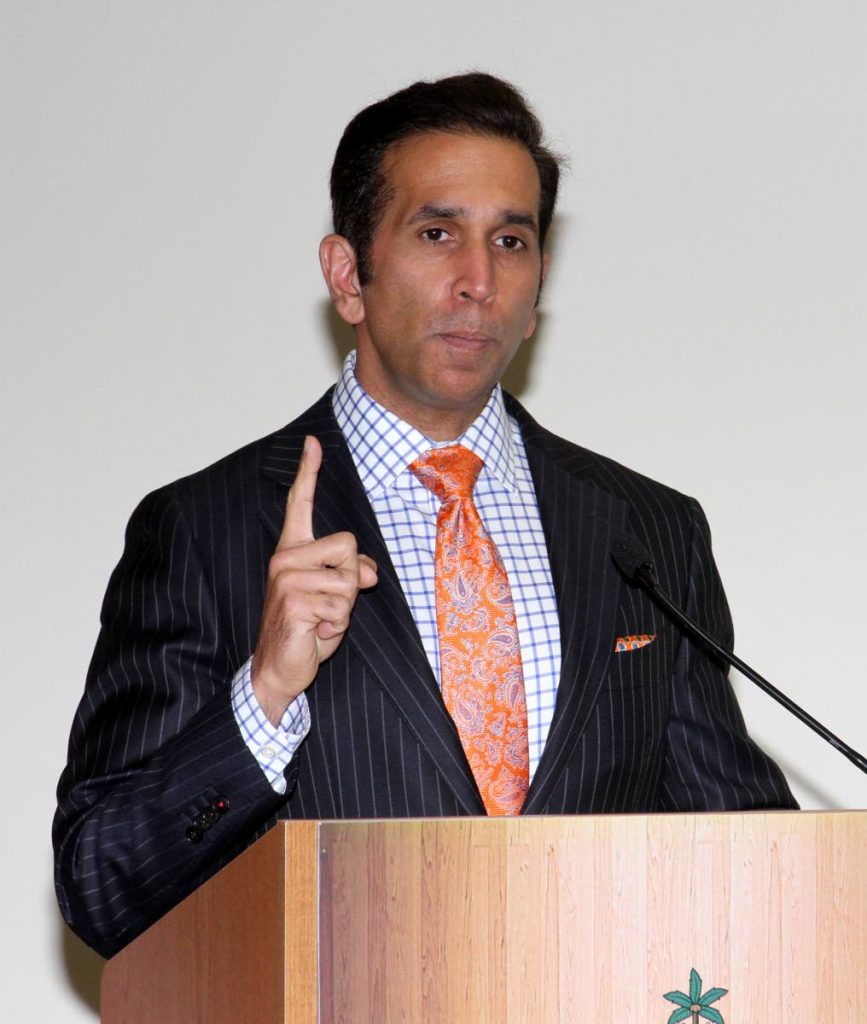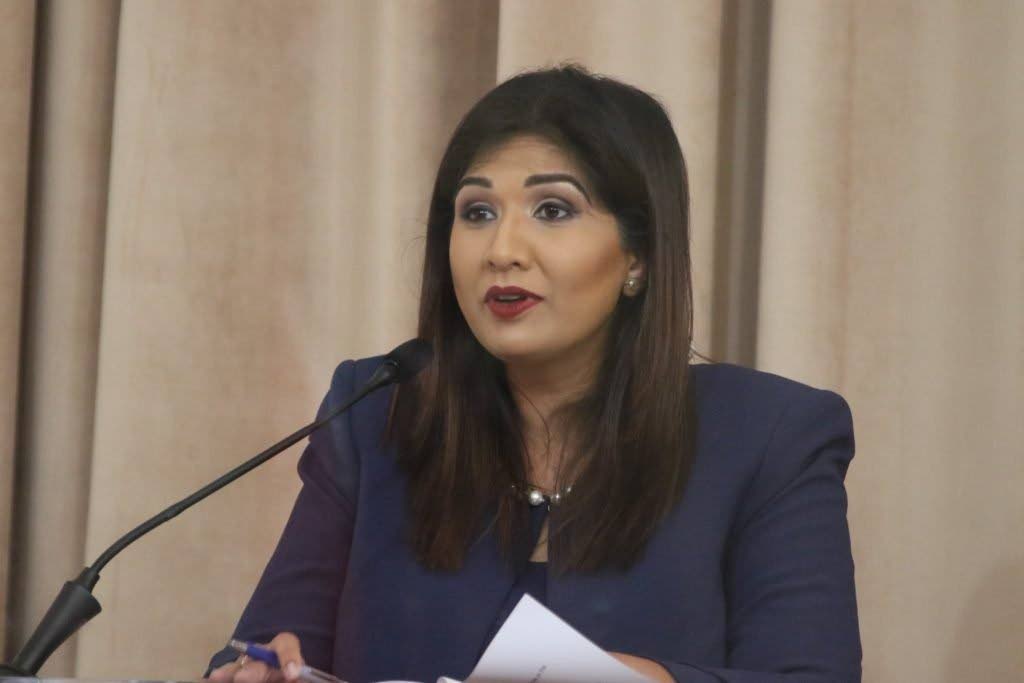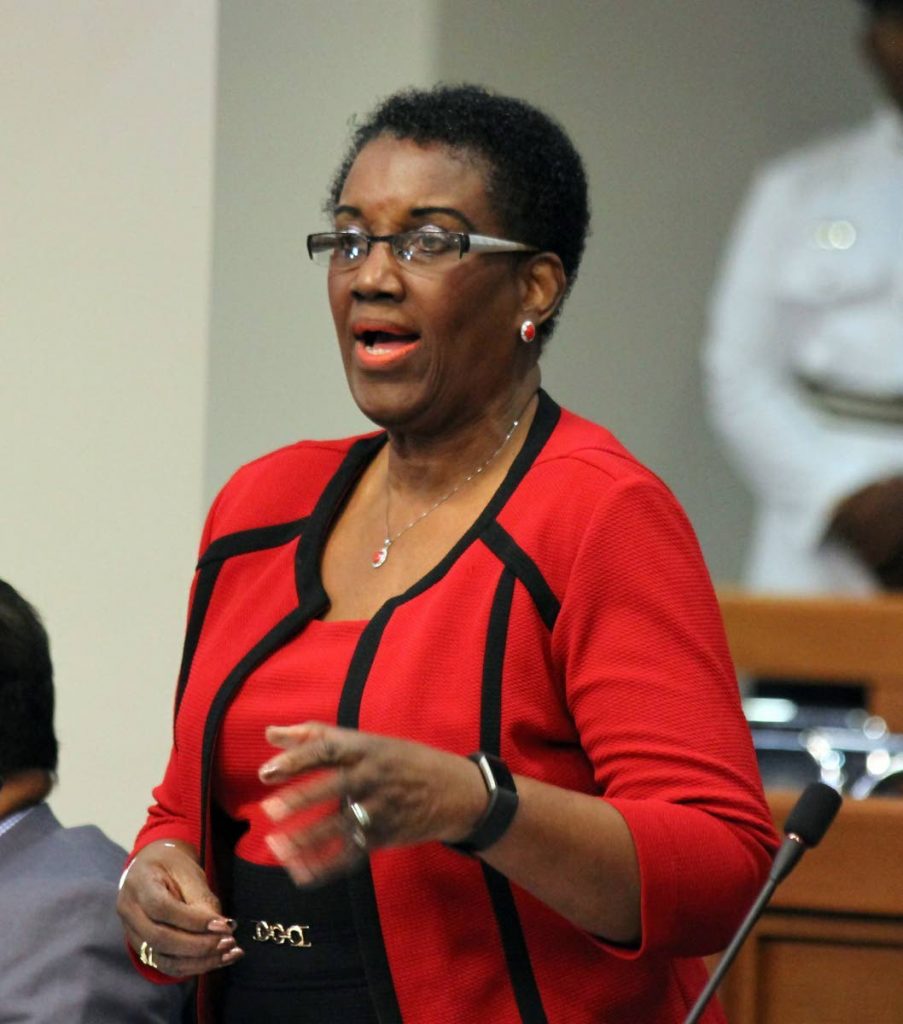AG proposes two sex offender registries

The Attorney General has proposed 22 amendments to the Act to amend the Sexual Offences Act, Chap. 11:28. Chief among these are the creation of two sexual offender registers.
Speaking in the Senate on Tuesday, AG Faris Al-Rawi said the bill intended to create two registers: the National Sex Offender Register, which would be private and for the use of law enforcement only, and the Public Sex Offender Website, which would be accessible by the public. The website would be under the control of the Commissioner of Police.
He said people convicted of offences would have their names added to the public register unless they appealed to the court not to do so for a valid reason, eg in the case of incest, and granting this appeal would be at the discretion of the courts.
“The Law Association has asked why people who had previously been convicted could not be added to the list. This is because the law is functus, meaning that because the court didn’t make an order at the time, it can’t be added retroactively.
“Some of the factors to be considered when considering the exemption request of a sex offender would be the findings of the mental health assessment report; the nature and gravity of the offence; whether the sex offender has been charged or convicted of any other registrable offence; the risk of reoffending; the risk of harm to the victim or harm to any other person; whether the victim was a child or a person with a mental disorder; whether the sex offender was in a position of care, authority or supervision of the victim; whether the employment and residence status of the sex offender are stable; and any other compelling reasons in the circumstances of the case.”
He said the bill would also apply to sex offenders convicted of a registrable offence outside of TT, who would be required to report to a police station if spending more than two days in TT.
The bill would require the name, date of birth, photograph, general locations, and convictions of the sex offender be published but would prohibit the publication of the main and secondary address of the sex offender.
Fines, prison time increased
Al-Rawi said a new clause empowers the court to order an offender to report to a police station within a specified time, while another removes the requirement for the court to state whether or not information pertaining to a sex offender should be stated on the website, once the person is ordered to register. It said where someone has appealed his conviction for a registrable offence, the court must order that the relevant information be published on the website within seven days from the date the conviction is withheld.
Another amendment would mandate the Commissioner of Prisons or the Psychiatric Hospital Director to notify the Commissioner of Police in writing of the release date of a sex offender, within four months before the sex offender is released from a prison or psychiatric hospital. He said it will no longer be mandatory for the High Court to request a mental assessment report from a psychiatrist when determining the application of a registered sex offender to terminate their reporting period.
An amendment allowing for harsher punishments for contravening regulations made under the act would increase the fine of a summary conviction under the regulations of the act from $50,000 to $250,000 and increase the imprisonment period from six months to five years.
Al-Rawi said he planned to introduce elements such as voyeurism, revenge porn, and others which are not currently criminalised. He said he planned to look at whether the corporal punishment law was still relevant. He said he was also going to ask for a register of sexual offences charges to be used for certificates of character, which would then flow into various other laws.
Lastly, he said the bill would not require a three-fifths majority.
Opposition: Courts should decide names on list
Opposition Senator Jayanti Lutchmedial said she supported any legislation which lessened violence against the vulnerable, including women and children. She asked why the bill did not call for a three-fifths majority, as when the current bill was passed in 2019 it required one as Al-Rawi had said it dealt with the rights of individuals.
She said while the legislation said the courts must put an offenders name on the registry once convicted, she thought that should be left up to the discretion of the court and not be dictated by the executive.

“The judicial officer with all the facts before them would be the best person to make that decision. When it comes to getting their information removed ad well, we live in a country where people don’t know how to approach the courts to do certain things. Not all sexual offences are grievous to the point where they should be on the website for their entire lives, so we should make the review process easier. We would also need to speed up the process of updating criminal records.”
Lutchmedial said she did not support people who have been charged being placed on a register. She also said it should be mandatory for a mental assessment to be carried out before someone is removed from the website. She said people should be told when they should check the register, for example if they were employing someone to work at a pre-school, school, or sport or cultural programme. She said more scientific methods should be applied to get more convictions.
Thompson-Ahye: Bill will not keep children safe
Independent Senator Hazel Thompson-Ahye said while the early amendments exempt child sex offenders from the register, the fact that offences in families were far more common than thought needed to be addressed.

“This bill deals with detection of a crime that is grossly under-reported, and gives inaccurate measure to this crime. If we feel that this bill will keep our children safe, we are delusional, as those who come to the attention of the law are the tip of the iceberg.”
She agreed people convicted of sexual offences abroad should be registered in TT. She said there must be a balance between the rights of victims and the rights of the offender.
Thompson-Ahye said she thought the CoP should be mandated to make every effort to see that the information on the National Sex Offender Registry be protected, as “we live in a “buss mark” country.”
She advocated for a restorative justice approach with an emphasis on reducing recidivism, encouraging reparation to the victim and community by the offender, and the eventual re-integration of the offender.
“I’m not saying we should throw out the register, but we need to look at the limitations of its use.”


Comments
"AG proposes two sex offender registries"